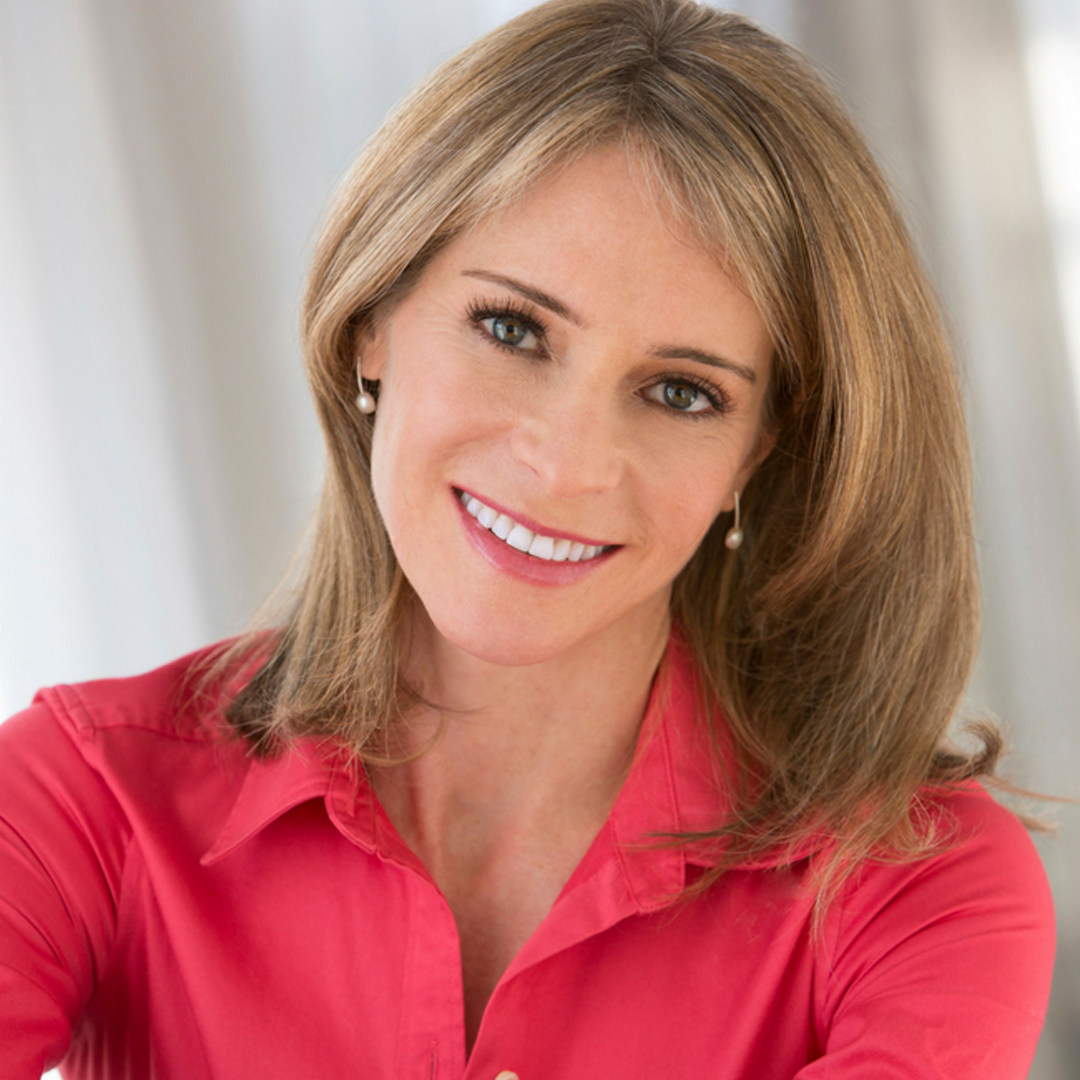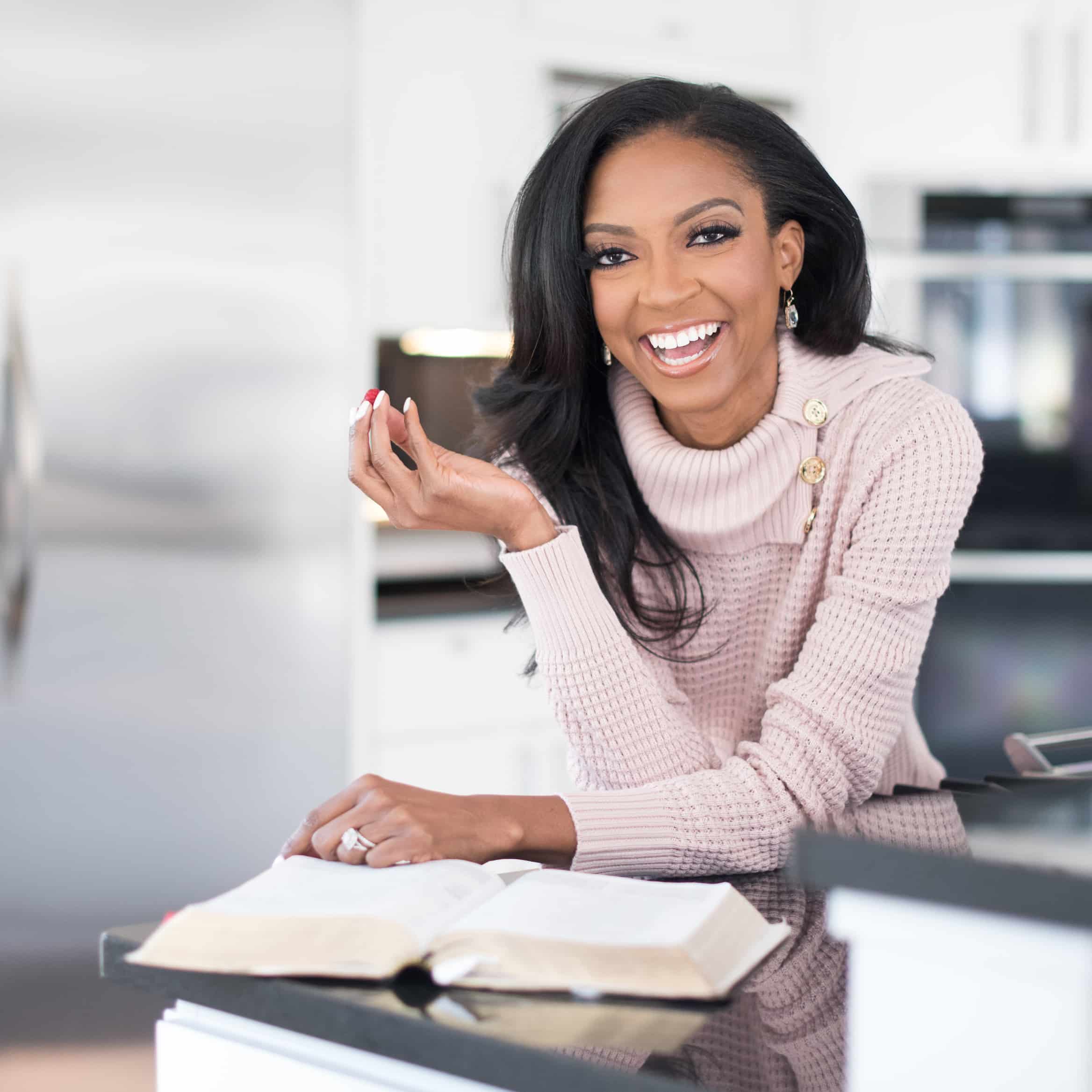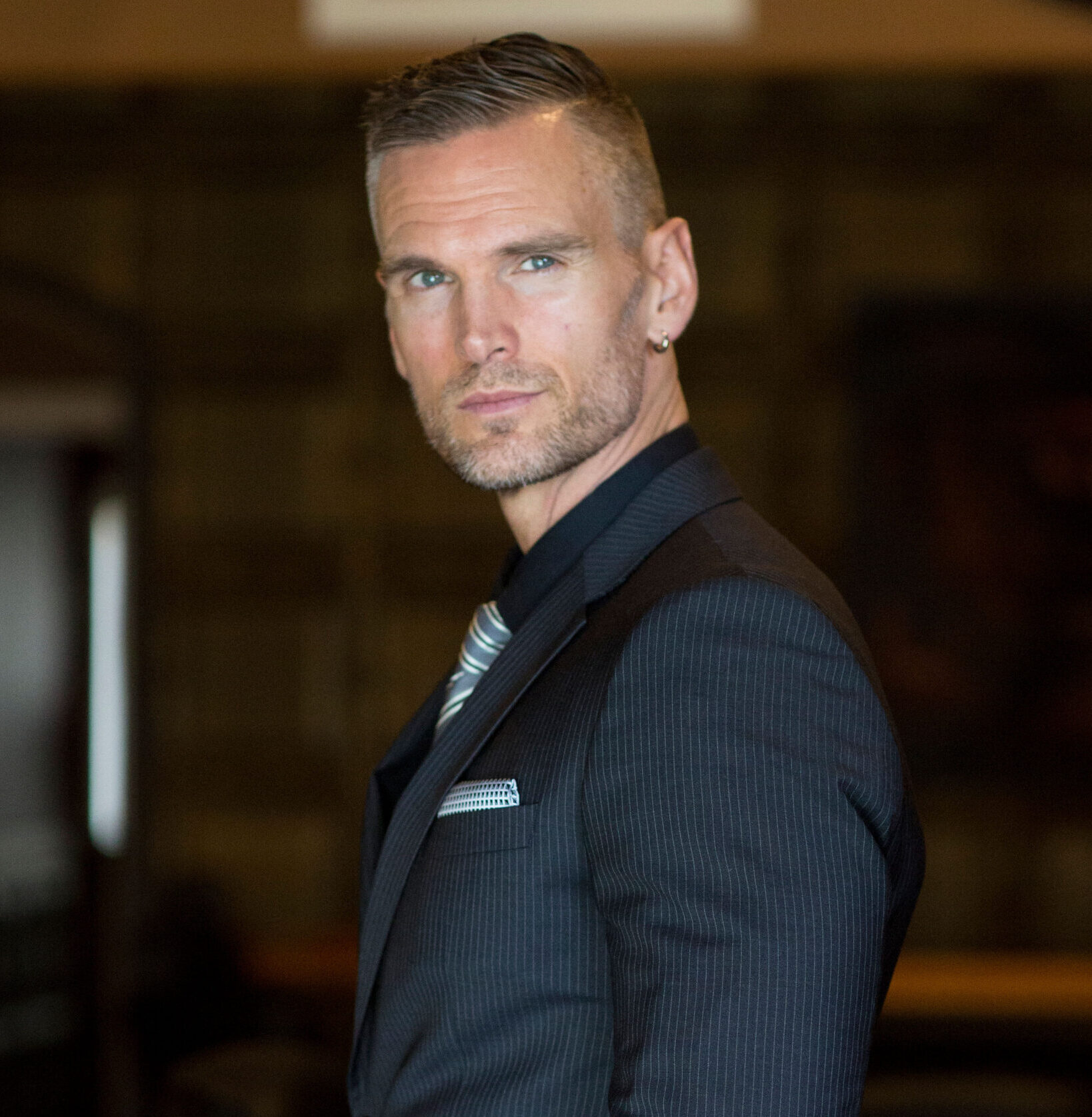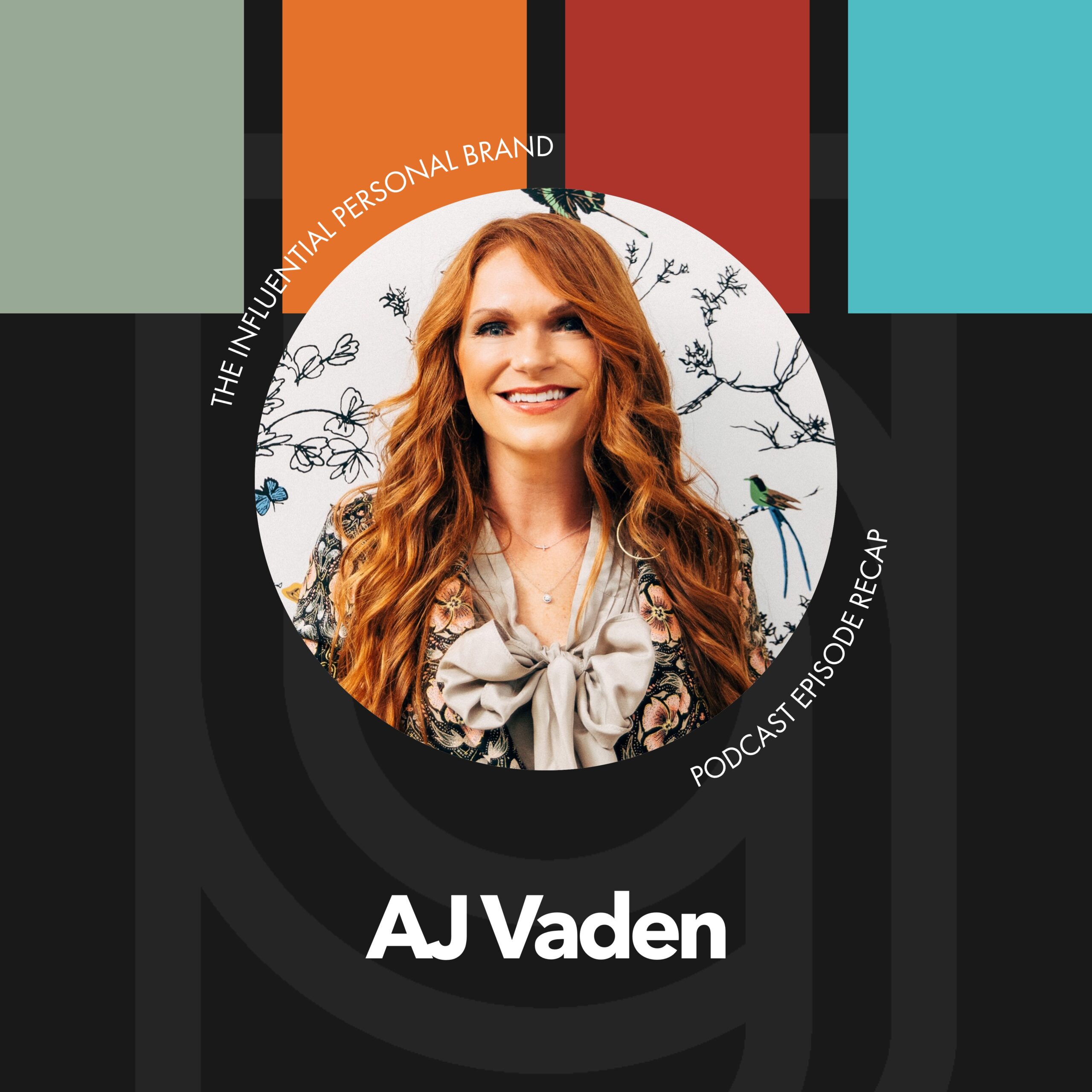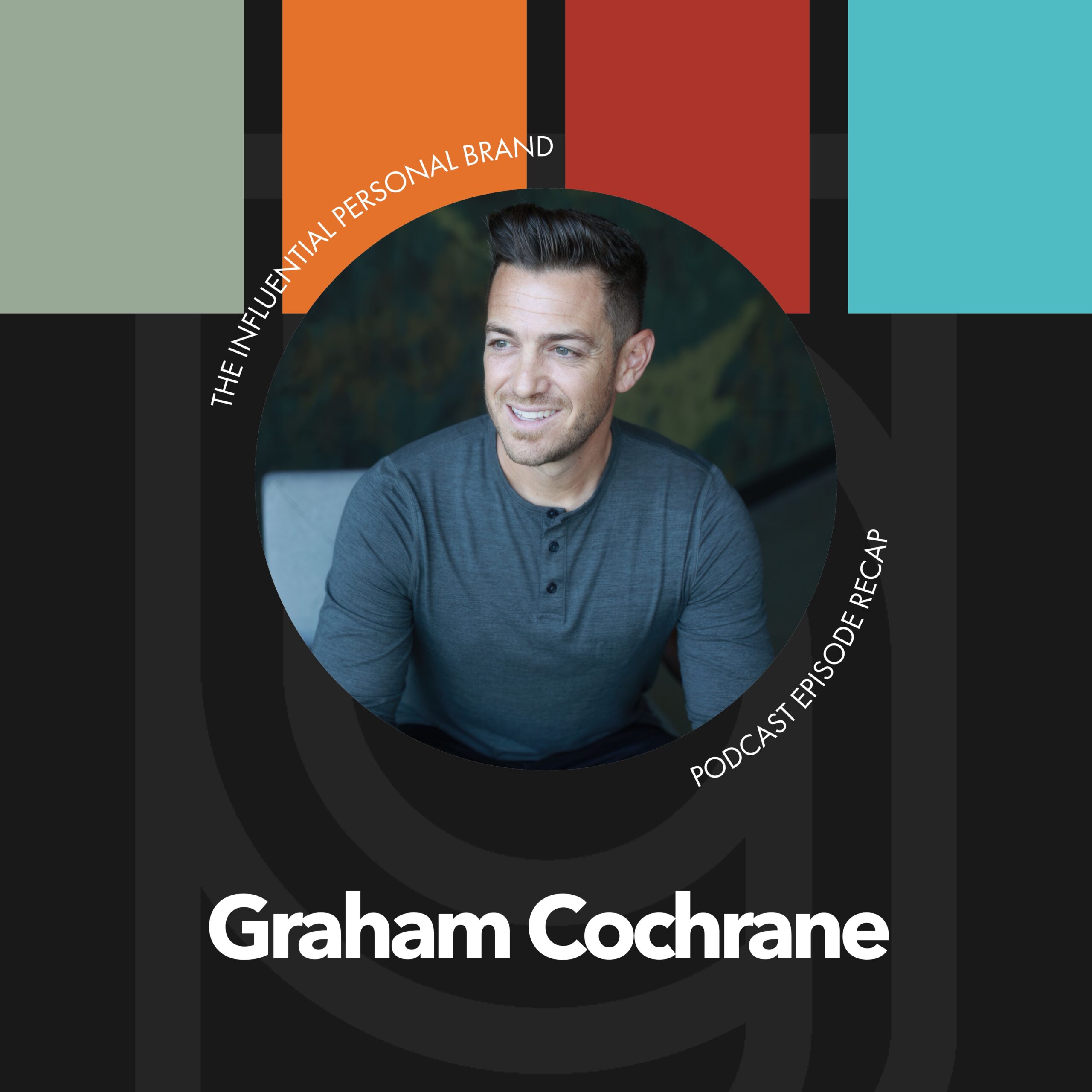RV: (00:00)
Hey, brand builder Rory Vaden here. Thank you so much for tuning in to listen to this interview, we are so excited to bring you this information and wanted to let you know that, Hey, there’s no sales pitch coming from anything that we do with this is all our value add to you and the community. However, if you are somebody who is looking for specific strategies on how to build and monetize your personal brand, we would love to talk to you and we offer a free call to everyone that’s interested in getting to know us and is willing to give us a chance to get to know them and share a little bit about what we do. So if you’re interested in taking us up on a free strategy call, you can do that at brand builders, group.com/summit call brand builders, group.com/summit. Call. Hope to talk to you soon on with the show.
RV: (01:04)
I love when I get to introduce you to some of my oldest friends and mentors and people that I’ve looked up to for years. And that is the case with Victoria Labalme. She is a hall of fame speaker, which is how I know her from the national speakers association. Someone that I admired for years and somebody that I would say is truly one of the best platform presenters on the planet. And it all speaks to what she does. I mean, she was a performing artist who was originally trained directly under the world, renowned Marcel, Marceau. She is magnificent in keynotes. She, she has she’s the creator of programs that help people with this. But the reason that she’s on the show now is because she is releasing her first official, traditionally published book is called risk forward, embrace the unknown and unlock your hidden genius. And so we’re going to talk about building your personal brand in a world of uncertainty, accessing your energy genius, and just hearing her story about how she has built this extraordinary reputation and personal brand. So Victoria, welcome to the show.
RV: (02:13)
Hello, Rory. And hello everyone. I’m so happy to be here. Thank you for having me.
RV: (02:18)
Yeah, of course. Well, you know, we’ve got so many interconnectivity points you’ve been to our events before, right? So I it’s, it’s, it’s the people in our community should know about you and should meet you. And, and so I, I wanted to, I wanted to just kinda like start off with a little bit about your, your, your personal brand and the, the unlocking your energy genius or unlocking your hidden genius. Which is, I think one of your, one of your taglines of subtitle of the book. And I want to talk about the presentation part of things, because that, to me is like, you know, part of where you came from you and I have that shared interest in, and a lot of people listening, they’re either doing, you know, virtual webinars, virtual keynotes and stuff like that. And I think when it comes to making that pivot from onstage live in front of humans, to now virtual keynotes and webinars and things, how do you, how do you make that transition and what are some of the things that we can do to just kind of like still over deliver as presenters, even though a lot of what we’re doing these days is virtual.
Speaker 3: (03:32)
So great question. It’s really, how do we create the virtual experience to have some of the pizazz that we are used to? Well, it all begins with taking creative risks. I have a session I do call risking forward on camera. And, you know, if you think about what you can do on stage, what can be translated and there are all kinds of ways, you know, those are a lot of technology out there. The people are using E cam and green screen and different camera angles and different mikes and music and instruments. And part of what I like to help people do as well though, is really take what’s within them, their hidden genius and bring that out. So that’s your content and your creative expression that only you do in the way that you do that distinguishes your brand. That’s part of what risking forward is.
Speaker 3: (04:21)
How can you create and communicate with the unexpected twist, the unexpected twist that distinguishes your brand. And that’s a core tagline of mine because, you know, everyone can put up a green screen, but what can only you do and how can you do it in your own way? So that starts with your personality, your past your passion. I call it the prison effect in each of us is a full spectrum of colors. So one of the things that make you distinct and different, you know, what stories, what props, what examples, what physicality, what expressions, how do you pull? So you don’t look from it, look, look like everyone else from everyone else’s perspective.
RV: (04:59)
Yeah. And I, you know, that’s interesting in terms of, it’s not so much an external thing of like a camera angle or lighting, or, you know, something fancy I’m doing on the screen, but you’re talking about accessing the internal uniqueness or you know, one of the terms we use around brand builders group all the time, which I originally got from you is through line. And this, this idea of the through line of your, of your message. We usually talk about that term related to your content. But like when you say a take take that, you know, take a creative risk, what is the thing that only I can do? How do I find that? Or is it just asking, okay, what stories can I tell that are unique to me? What props can I use? What physicality does it basically just come by asking myself those questions and then base it, then, then just giving myself permission to just go, yeah. Let’s act on that crazy idea. I mean, is it as simple as that?
Speaker 3: (05:58)
Well, yeah. I mean, part of it is trusting that the, the things that are different and weird about you are often valuable. I mean, Sally hogs had our good friend has a whole phrase called you know, different is better, you know?
RV: (06:14)
It is better than better. I love, I love that. Yeah, that is such a great line. Different is better.
Speaker 3: (06:19)
Oh, you meant different as being better for a long time. And it’s just, it’s true. Not, you know, not in a terrible way, but it there’s so much value. And what happens is, and I talk about this in the book risk forward. And I talk about this in my program, rock the room is we shave off parts of who we are to fit into a mold. So for me, I’m extremely physical and, you know, they’re all kinds of things I can do with my body, but other people are more visual, you know, and some people have instrumental skills and some people have comedic skills. So it’s really access to what’s unique and different to you. And bringing that out in terms of taking those creative risks. I always encourage people to do what I call is a micro risk, because you don’t want to go out in front of a thousand people on a zoom or on a video recording or a webcam and try something new for the first time.
RV: (07:05)
Oh, this I’m glad you’re saying this. Cause I was going to ask you about this. So you’re, you’re, you’re not testing it out in front of like, you know, the largest audience you’ve ever been in front of them.
Speaker 3: (07:15)
Right? I mean, any comedian will tell you two things. Number one, and this is my background is a performing artist, a comedian and a movement artist is that, you know, you’re either going to do one of two things. You’re either putting new content between two time-tested pieces of material. So that if it sags, if you tank your out quickly, so you put it in there and then you recover. But more importantly than that, the first time you do it should not be in front of your biggest, most important audience comedians tour their work across the country, in small clubs before they bring it to Broadway, same thing with shows. And it’s the same for us as presenters. What we do is we try it out with a few friends. We tried it with a couple of colleagues. Is it working? We refine it over time and we increased the size of that audience.
RV: (07:59)
Yeah. I mean, it’s funny cause I, I literally my, my original Toastmasters club, which is where, you know, like my speaking journey started cherry Creek Toastmasters. They last night I sent them a video. They asked, they asked if I would do a video of what, 15 years later, how it shaped my life. And I told them that my best jokes today are the ones that I originally wrote. The first renditions are versions for my icebreaker speech in front of eight people at my, like my local Toastmaster club. And you know, I think that’s interesting. I mean, you’re, you’re saying that as like every comedian knows, but I that’s a good reminder even for me. And I’m sure some people listening have never heard that, like don’t put new content, like put it in between two things so that you can recover and don’t test it out, like on, on the world’s biggest stage.
RV: (08:54)
So think that’s, I think that’s handy now on the topic of risk in general, risking is risky. And so I think, no matter if it’s even just writing a book or even doing a virtual presentation or maybe talking about a different topic or going live, like is a big thing right now, like it’s risky to go live on social because you don’t know it. You can’t add it. Talk to me about the emotional side of dealing with risk or managing risk. Even it could be in a business like, Hey, I wanna, I want to launch a new funnel or do something I’ve never done paid advertising. All of these concepts are, there is a fear of uncertainty, which I know is more about what risk forward is kind of about. So like how do I navigate the emotional side of, of uncertainty?
Speaker 3: (09:48)
Right? Well, I’ll start by explaining where the term risk forward was born. Years ago, as you benched in my introduction, I studied with the French mime, Marcel Marceau, and people love to joke, Oh, you’re a speaker, but you studied mine, which is a stupid joke. You want
RV: (10:08)
It actually took me a second to get it. I was like, what? Oh, Oh, okay. Okay. Now I see now I see.
Speaker 3: (10:14)
Yeah. I always tell people, be careful not to say the obvious because you lower your status. It’s like, if someone’s laughing,
RV: (10:21)
Right. That is so funny. I’ve never heard that. I love that. That’s funny.
Speaker 3: (10:27)
Yeah, no, it’s true. If someone’s really tan, don’t say you’re really tan. If someone’s last name is hamburger, don’t make a joke about it. Like, cause they’ve, they’ve guaranteed. They’ve heard it. So have I heard mom jokes? Yes. Do I need to hear them? No, because when I do, I’m like, okay, you’re now in the category of a certain
RV: (10:45)
Type. You’re that guy. You’re
Speaker 3: (10:46)
That guy. So you don’t want to be that guy. In any event. I studied with Marcel Marceau and there was a type of movement. He called he scab, they schema. And it was, it was a way of being almost like the sale of a boat. You know, you were arched open with the wind, your body. And for those of you listening, who can’t see me, I’m my body is arched open, like the wind. And it was, it felt very exposed, a little scary. And I’ve come to think of that as a philosophy for how we approach our work in our life. And I returned it risk forward and trademarked it years ago. And it’s really how do we go forward heart open, even if we’re a little off balance because the mistake that we each make and part of what I address in the book is that we think we should always be clear.
Speaker 3: (11:35)
We think we should always have a plan. We think we must have a goal if we’re going to succeed. And having worked with so many people from top executives at Starbucks and PayPal, these are my clients, the C-suite at these companies like Microsoft Starbucks, PayPal entrepreneurs, running multi-million dollar brand. Speaking on Oprah’s stage artists from Hollywood. I’ve learned that many of them didn’t always have clarity or a plan. And so while it’s good to have some idea, sometimes you can meet with great success without always knowing where you’re heading and we all have that experience in our lives. And that’s what risking forward is about. And it’s lots of stories and examples and tools and principles from the arts to help you navigate through that. Not knowing through that period of uncomfortable near miss discomfort to find your best way forward. And so whether it’s to your point, you know, you’re launching a new funnel or you’re putting together a new blog or podcast, there’s a ton of unknown. And what we do is often as we grasped for like the, the, the simplest the most convenient way out or what everyone else is doing instead of finding what’s original to us, even if it’s not been done before.
RV: (12:52)
Hmm. I love that. And the, the, that con that was re re is the translation of what Marcel used to say, is it, does it translate directly as risk forward or is it not really the direction?
Speaker 3: (13:11)
Not really. I mean, it was my interpretation of it. I mean, this is obviously risk and Evonne means in front of
RV: (13:17)
Huh. Huh. Yeah. But that’s,
Speaker 3: (13:20)
If all means before or in front of, so huh.
RV: (13:24)
So, but that, that concept of, of, of even just applying these principles of the arts to the way that we live and the way we make business decisions is to kind of like, be willing to almost like listen to the way you feel pulled in the direction and not necessarily just what is clear because it’s of what has been done before. And that’s why, I mean, in a COVID like in a world of COVID, I mean, this is our life. I mean, our, everything, like in this moment, at the time of this recording, which is before your book is coming out, we are living in a complete world of uncertainty. Like nobody knows what’s going to happen next month or in the next six months, it’s just like, this is the world that we, that we live in. And so it seems like somehow, and I would say this about you as a friend that you you’ve been able to give yourself that permission to just kind of like explore the wonder of that rather than to fight against it. Is that yeah. Would that be accurate to say
Speaker 3: (14:30)
It is accurate to say, and my life is I I’m pleased and humbled to say that my life has been extraordinary. The career I’ve had, the successes I’ve had, the personal successes I’ve had have led so many people to say to me, how’d you get to where you are? What was your plan? And I always say, I didn’t have a plan. You know, I did what was next. And I learned that in my life for my parents. And I’m here to tell you, I am living proof. And the people in the book are living proof that there are all kinds of other ways forward and it’s freeing to people it’s freeing. And I think it also depends on what you value, because if, if you know, if what you’re after is status you might not take as many risks and it oddly it’s the risk taking.
Speaker 3: (15:20)
That’s going to get you there. You know, and same thing with finance. You know, if, if you’re trying certain mechanisms to generate a ton of sales, but the word, my word back to the, your through line is not pure. It’s not going to last long. And so we’re always coming back to what’s, what’s truthful, what’s that inner current, and this may sound woo, but I have worked with the top executives, as I mentioned, and this translates and it is redirected companies. It is redirected teams, it’s redirected entrepreneurs and artists of all kinds to come back to that because it’s the pure path forward.
RV: (16:02)
You know, I would, I would second that, yeah, there is one of my friends here in Nashville is a guy named Jerry Jeremy coward, who is he is an artist. He is one of the best photographers in the world and shoots Taylor Swift. He shot the Pope. I mean, just amazing. And I remember one time you know, he liked did this, there were some fires in Tennessee and he went and took pictures of the houses that burned down and just to like showcase to the world, like how devastating this was. And I asked him, I was like, dude, where did you come up with the idea to do it? And he said, he said, I just felt it. I just had it. And he said that everybody has those crazy ideas. The difference between me and everyone is I actually listened to them. That’s right. And, and Jeremy is an artist. And I would say, right right now I have two personal friends that are billionaires which is a recent thing. I’ve, I’ve interviewed several of them, but there’s actually two that I now know personally and interact with on a fairly regular basis. And I would say these are business billionaires, like business. And I would say, this is true about them. Yes. They
Speaker 3: (17:12)
Literally, in both
RV: (17:14)
Cases, they were both told that what they were doing was stupid. It made no sense. It was ridiculous. It would never ever work. And so it’s like, there’s not that much different know. I think being an entrepreneur is being an artist.
Speaker 3: (17:31)
Yeah, absolutely. And that’s the argument I make in the book and exactly that the successes we’ve each had. And I think anyone listening can think back on their lives, some of the most extraordinary successes that you’ve had happened when you were following that. And there are many, many stories of that when you took that creative risk, even though you didn’t know where it was going to lead, but it felt like the right thing to do either morally ethically, or just creatively curiosity wise. And that, as I always say to my clients, one of three things will happen when you risk forward. And they’re all good either. You’ll discover the ideas. Terrific. And it’ll come out to be something like your friend with the photographs. Yeah. Number two, it will be the step that leads to the next one. And so you’ll realize that wasn’t quite it, but it took you down the right path and you wouldn’t have seen the right path.
Speaker 3: (18:22)
Had you not taken that step. For my case, it was doing standup comedy. I thought, Oh, this is my thing. This is many, many years ago. I took that step forward and I realized that wasn’t it. But it was actually my trying to get into a comedy club show. It was, I was trying to audition for the HBO Aspen comedy festival. And I was in a comedy clubs thinking that was my path. And someone from the speaking world saw me and said, Victoria, you should come and be a speaker who would have thought, so it’s following that steps. That’s the second thing. And the third possibly the most important of all is that they say the number one regret of the dying is that they didn’t take more risks. People say, I lived life on other people’s terms. I didn’t take the risk I want, and I never tried X or Y or Z. And you don’t want to die. Wishing you taken more risks. So risking forward is all about finding what’s ahead by stepping forward into it. Even if you don’t know.
RV: (19:21)
Mm. How do you balance this idea of having a plan? Cause that’s something we do. I do this in my life. We teach people to do it as like we do set targets. We do have goals. We do, you know, we have a budget for our company that we have to operate by. Like, you know, there’s, there are KPIs and there are, you know, new initiatives and we have project management and you know, these are things we do that have helped us scale at least to where we have been. How do you balance the idea of goals and planning, but also what you’re saying, which is more of, of risk-taking. And I, I, you know, I, I think an intuition or creativity, like how do you reconcile these two? Or do you, do you think one is right and one is wrong? Or do you, do you think there’s some type of a balance and how do you, how do you find your way there?
Speaker 3: (20:17)
Yeah, that’s a great question. I think it’s a, it’s a both and type of scenario. I’m all for goals and plans and clarity. And I have that with this book. I have this with projects in my business and in my personal life, what I’m addressing is the in-between when we’re between moments of clarity. So let’s say you’re coming up with the plan for your year, or you’re coming up with how you want to approach your new podcast. Are you new speaker demo or your new blog as you’re in what I call in the book, the fog of not knowing it’s how you embrace that fog embrace the unknown. As I say, in the subtitle of the book that will determine your success. And most people are so uncomfortable with not knowing that they want to make a plan as quickly as possible. And that’s where we screw up.
Speaker 3: (21:07)
So in a personal life, it’d be like the woman who’s 29, who says she has to get married by the time she’s 30 looks around, sees her two viable candidates and picks one, even though it’s not right, that’s you see that happen all the time. I have many friends who got married because they were scared and they wanted something in place. And 10 years later they’re divorced and it’s messy. The same thing in our work. We don’t want to be in the phase of not knowing people are afraid. So they make a decision really quickly. I’m going to go this direction or we’re going to do that. And when we make that commitment, the potential for loss opportunity, cost stress, money, time, creative expression that goes down the tubes. And we’ve all had those moments in our lives where we’ve committed to something out of fear, because we want to look clear and everyone else is doing it.
Speaker 3: (21:55)
And then two years later, or two months later, we realize what was propelling us forward was not something from within and something that lit us up, but something that we thought we should do from the outside. And that’s what I want to help people save themselves from, because I have seen it around the world and I’ve spoken around the world and Japan and Brazil and France, there’s so much that’s lost and there’s so much sameness homogeneity and you see it in all industries and this is risky for it is all about breaking through that and doing it the way only you can.
RV: (22:29)
Yeah. I mean, I think this message of taking creative risk is going to stick with me. And gosh, there’s just so many examples of this in, in my life. And it it’s such a relevant time for this conversation. Cause we like are living in such uncertainty right now. And yet that’s why like there’s more millionaires made in down markets than ever before, is all these opportunities emerge. And if you just kind of like listen to it and step in that direction. So I wanna, I want to tell everybody this, all right now this won’t apply to all of you because we’re releasing this episode before Victoria’s book comes out. And if you happen to hear this in this, this little window, so your book, your book comes out on March 16th. And if you, if you go now either way, you’re going to get some good things.
RV: (23:24)
But if you go before March 16th if you go to risk forward.com forward slash book, there are some incredible bonuses that she is giving away. Both here on the emotional side related to, you know, like working through uncertainty, but also there’s some real practical things related to some of her in terms of being a physical performer, which are just extraordinary. So if you go to risk forward.com forward slash book, by the way, if you’re international, you can also order, which is rare. She’s got an international thing set up. If it’s after that date, it’s totally fine. You could still go there. You’re going to get some bonuses and some extra resources that she has included. But if you get this before, you’ve got a little window to go to go check it out. So risk forward.com forward slash book is where we will, we will put it.
RV: (24:16)
I am, I’m giving a shameless plug here for my friend that I’ve known for years who you can see just her, her wisdom and, and how graceful and in touch she is with exploring this artistic side. And I believe that it will help you unlock your hidden genius. And that’s why I want to encourage you to at least go check it out. Right. plus it’s a great opportunity as always to go see how someone is executing her pre-launch and doing her launch and how she does her book website. So other than that, Victoria, is there anywhere you would point people to or anything you want to leave us with?
Speaker 3: (24:53)
Yeah. Well, that’s it, that’s the website. We have an amazing video up there. That’s one minute and 40 seconds, which shows a bit more of what the book looks like, because here’s the thing. This is not a typical book. It breaks the mold of what a book is. It’s an experience. Every page is different. You can read the book in any order. Each chapter is unique unto itself. There isn’t a book like this that I’ve seen. It is my ability of bringing through. And this is what I want you each do for yourself. Take your different sides. I took my background in arts and in performance and in poetry and in business and an entrepreneurship. And I put it all together into a book experience. That’s my style. What’s your style? How do you do it? Not like me, but like you. And so check out the book, not to copy it because that would be a bummer.
Speaker 3: (25:42)
Cause it wouldn’t be you, but to do what you do in the way only you can and that’s, what’s going to distinguish you. So this is all about, as I say, in the book at the edge of not knowing, cause I didn’t know how I was going to do this book in the beginning, but then it became clear as I stepped into it. So at the edge of not knowing is the beginning of the extraordinary. So trust yourself, risk forward, put those ideas out there. I have tons of tools in the book for how to do that. I’m so excited if you’re ordering this before the book launches, we have a book team that you can be part of you get inside behind the scenes of what’s happening. But thank you worry for having me. I’m so happy to be here. You’re a stellar human being. Love it.
RV: (26:25)
Thank you, Victoria. We wish you all the best with your launch and far, far beyond. And you know, we’ll be, we’ll be watching closely. So good luck. Thank you.

